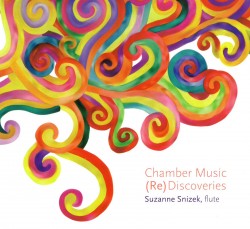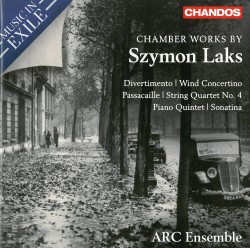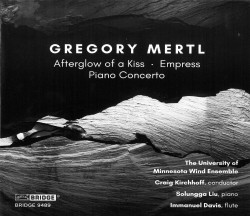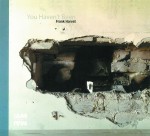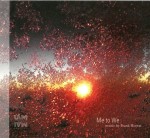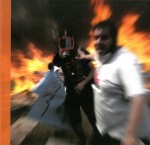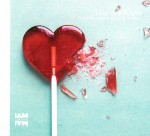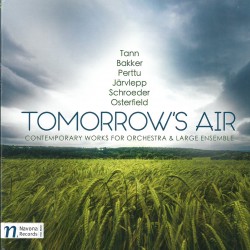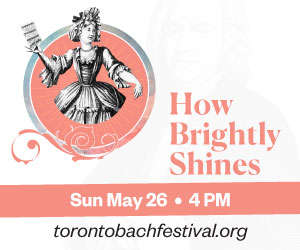Antique Violences: Music of John Mackey - Michigan State University Wind Symphony; Kevin Sedatoale
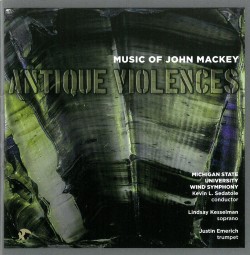 Antique Violences: Music of John Mackey
Antique Violences: Music of John Mackey
Michigan State University Wind Symphony; Kevin Sedatoale
Blue Griffin Records BGR449 (bluegriffin.com)
John Mackey (b.1973) is a much-commissioned American composer. On this disc the vocal writing and instrumentation of Songs for the End of the World (2015), written for the outstanding soprano Lindsay Kesselman, is appealing. It vividly re-imagines part of the Odyssey from the point of view of Kalypso on her island. Mackey’s setting of A.E. Jacques‘s text reflects her weariness from isolation, leaving room for Kesselman’s rich voice to grow vocally throughout the performance. In the second movement Kalypso recalls Odysseus washing up on shore after his shipwreck and, in Lydian mode phrases extending into Kesselman’s radiant top range, her healing of him and the love they developed. Bright harp, vibraphone and piano tones add lustre. But after seven years Odysseus leaves for Ithaca where Penelope awaits. The third movement’s title At Sea indicates Kalypso’s memory-haunted despair, captured in Kesselman’s mournful tone backed by an evanescent harp.
Antique Violences (2017), a four-movement trumpet concerto premiered with panache by Justin Emerich, evokes and questions mass violence throughout history. While admiring the composer’s wind symphony mastery and idiomatic trumpet part, I question whether the work realizes its stated musical ideas. According to program notes for the second movement “The music begins in a decadent French Baroque style, then unravels its shimmering mask to reveal the barbarism beneath.” But to me it is poor musical pastiche, lacking compensating artistic value. Asphalt Cocktail (2009) is a high-class car chase, with the Michigan State University Wind Symphony conducted by Kevin L. Sedatole attaining peak form.


